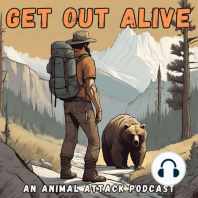52 min listen

Ep. 64: Man-Eaters of the Sundarbans
Ep. 64: Man-Eaters of the Sundarbans
ratings:
Length:
48 minutes
Released:
Oct 18, 2023
Format:
Podcast episode
Description
This episode was inspired by the book Spell of the Tiger: Man-Eaters of the Sundarbans by Sy Montgomery. We cover past and present conflicts between tigers and the people of the Sundarbans. Studies mentioned in episode:Female tiger Panthera tigris home range size in the Bangladesh Sundarbans: the value of this mangrove ecosystem for the species’ conservation by A. Barlow et al.Understanding carnivore killing behaviour: Exploring the motivations for tiger killing in the Sundarbans, Bangladesh by C. Inskip et al. Support the showSupport the show by shopping at www.getoutalivepodcast.com/shopFollow us on Instagram, Facebook, Tiktok, check out our website GetOutAlivePodcast.com and join us on Patreon (where you can now follow us for free)!You can find Ashley @TheAngryOlogist on Twitter
Released:
Oct 18, 2023
Format:
Podcast episode
Titles in the series (79)
Ep. 14: Travis the pet Chimpanzee by Get Out Alive: An Animal Attack Podcast